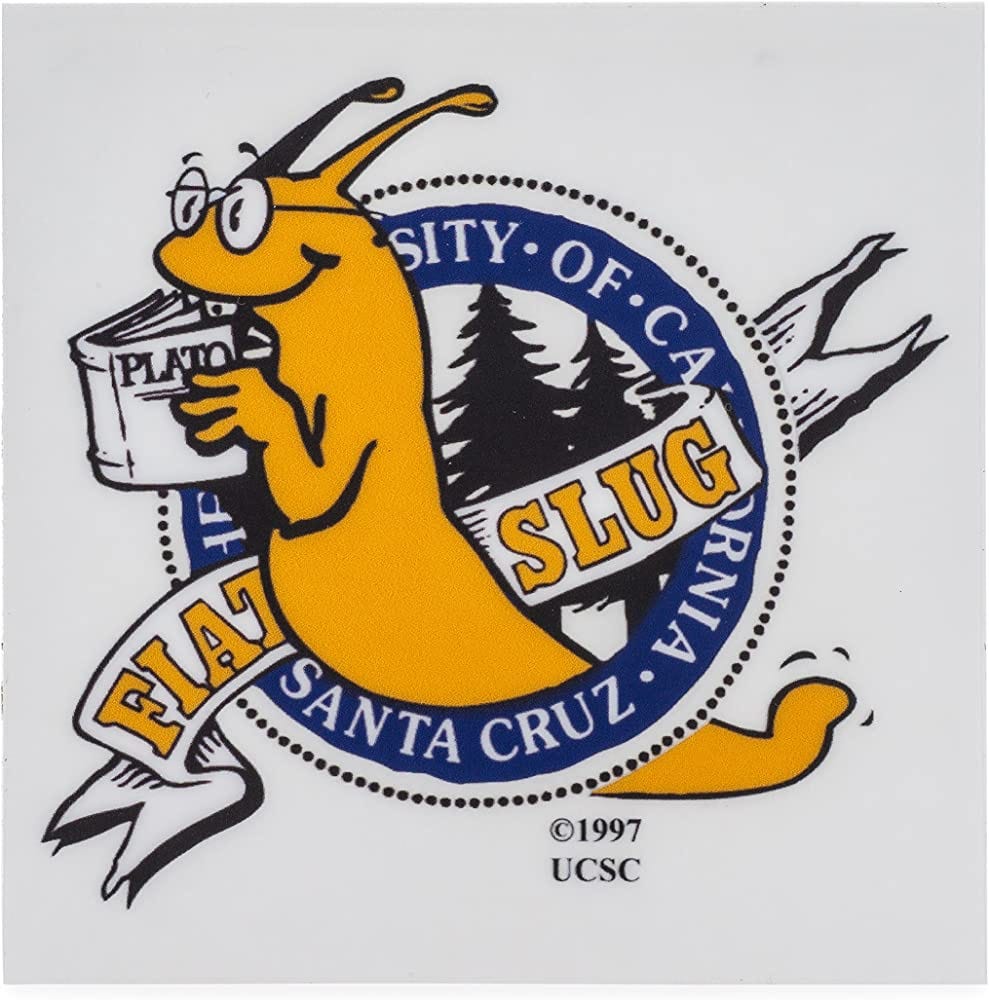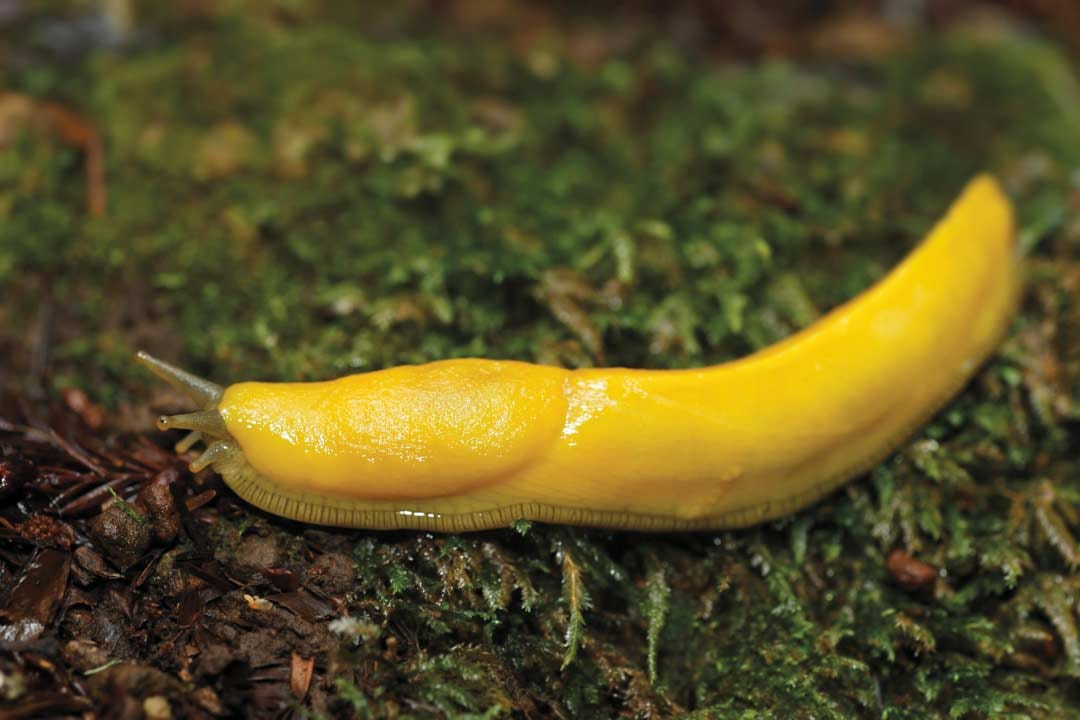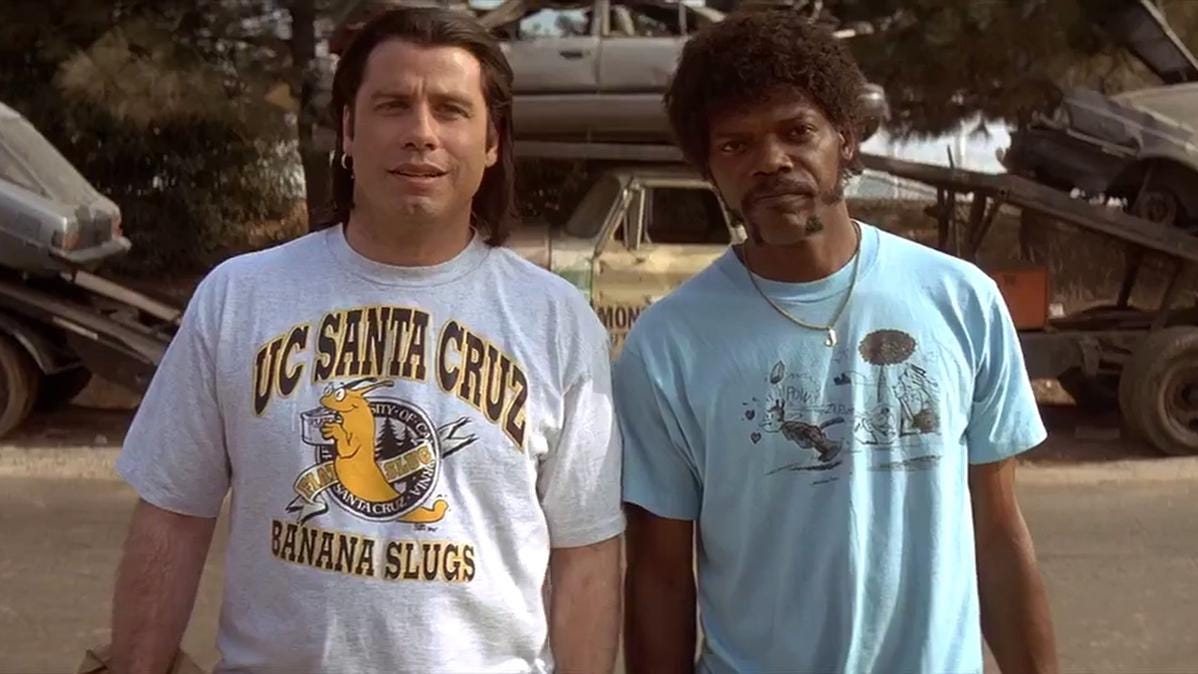I attended the University of California at Santa Cruz in 1986-1987. The campus is located in the West Coast’s coniferous rainforest belt, which runs from Santa Cruz in the south to Alaska in the north. It’s nestled in among redwoods and meadows, and it overlooks the Pacific Ocean. I have lovely memories of hiking to class across bridges and through redwood forests, my lungs full of cold, fresh air.
UC Santa Cruz is renowned for its liberal arts programs and scientific research. It’s also known for being different—when I attended, the school controversially didn’t give out letter grades. Instead, all classes were pass/fail with a narrative evaluation written by the professor. I liked it. I still remember a line from my Literature 101 evaluation: “Leanne is already a first-rate student of literature, and potentially a literary critic to watch.” I didn’t know what a literary critic was, but it sounded complimentary. One of my most treasured memories of my time at UCSC: the year I started school there, astronomer Carl Sagan spoke to a small group of us in the Quarry Amphitheater.
“The universe is all that is, or ever was, or ever will be. Our contemplations of the cosmos stir us. There’s a tingling in the spine, a catch in the voice, a faint sensation as if a distant memory of falling from a great height. We know we are approaching the grandest of mysteries. The cosmos is within us. We are made of star stuff. We are a way for the universe to know itself.” —Carl Sagan
UC Santa Cruz has a reputation for being home to peaceful activists, affable rebels, and creative types. When I was there, the big controversy was the administration’s attempt to slight the school’s unofficial mascot, the banana slug, and name the sea otter the official mascot instead. Students weren’t having it. They embarked on a successful campaign to install Sammy the Banana Slug as the school’s official mascot. The banana slug became the official school mascot of the University of California at Santa Cruz in 1986. It was a historic year.

I'm sure most people were not surprised. After all, giving a mollusk official school mascot status at one of the most respected universities in the country is something you'd expect from those liberal, tree-hugging, granola-munching Californians. And what else would you expect from the school that was selected to house the Grateful Dead Archive, Dead Central, in its library in 2008? Grateful Dead guitarist Bob Weir backed the choice. U.C. Santa Cruz is "a seat of neo-Bohemian culture that we're a facet of," he said.

How did students effectively convince the school’s administration that the banana slug was the most appropriate mascot for UC Santa Cruz? They argued not only that the banana slug is unusual and different, like the school itself, but that its characteristics were reflective of the university and its students. The banana slug is native to UC Santa Cruz's breathtakingly beautiful campus and shares a mutually-beneficial relationship with the California Redwood. It is a decomposer, which means it consumes plant detritus and recycles it back into the nutrient cycle, an important part of the ecosystem. It displays the admirable qualities of reflectiveness and flexibility, and it is a peaceful creature. It uses its slime to gently numb the tongues of its predators.

When school administrators refused to budge, students took their case to the highest court in the land, The David Letterman Show, pointing out that both Letterman and banana slugs are "nocturnal creatures." Students eventually won the administration over, and within a few years, the banana slug became legend. In 1994, John Travolta sported a UC Santa Cruz banana slug T-shirt in the final scenes of Pulp Fiction, and by 1996, Sports Illustrated had declared the banana slug the top school nickname in the nation. ESPN reaffirmed this honor 20 years later in 2008.
The banana slug has endured as the mascot of UC Santa Cruz for over 35 years now. For me it remains a symbol of the power people have to work together to make something whimsical, joyful, and impossible happen.



